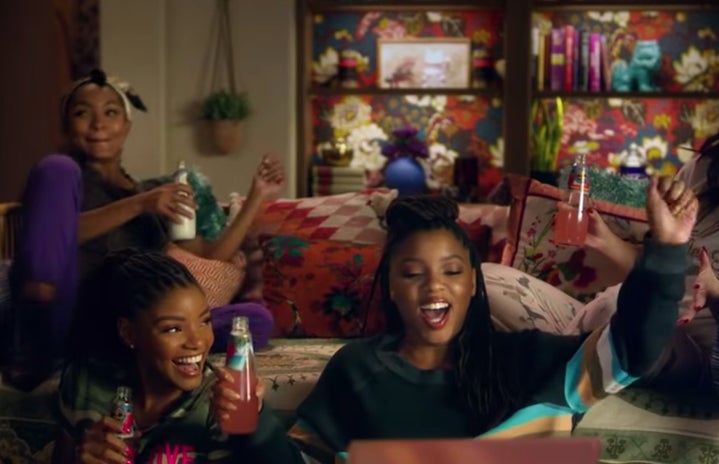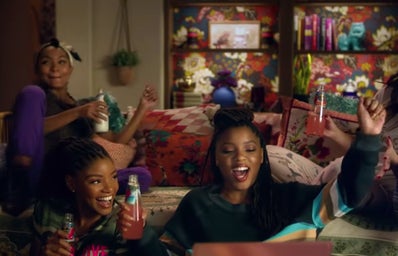The most recent controversy on Black Twitter is whether or not we should gate-keep yet another aspect of our culture. Newly founded majorette team on USC’s campus has gone viral within these last few weeks for being on the campus of a predominately white institution. The majorette team was founded by Princess Isis Lang, a 20 year old Chicago native, musical theater major, and longtime dancer. A lot of opinions have surfaced on the timeline regarding if a black majorette team belongs on a white campus. Let’s get into the history of what majorette dancers are and how they’re a vital part of black academia culture.
tHE HISTORY OF MAJORETTE TEAMS IN BLACK SCHOOLS
A Majorette is a baton twirler whose twirling performance is often accompanied by dance, movement, or gymnastics; they are primarily associated with marching bands. In the south, or more specifically areas with a high concentration of Historically Black Colleges and Universities, majorettes take on a whole different shape. HBCU majorettes sometimes include baton twirling, but also include an extensive variety of dance styles, from West African, hip hop, step, bucking, and jazz.
HBCU majorette dancing includes choreography that is done in the stands of sports events, types of dances include J-setting, popularized by the Jackson State University Prancing J-Settes, which is a type of high-stepping, high energy style which utilizes call and response between dancers; and more lyrical versions as seen from Southern University’s Dancing Dolls, who are known for their fluidity and port de bras (movement of the arms).
Furthermore, there are numerous situations when the Black youth who dream for years of attending illustrious HBCUs only to then find that there is no funding for the department of their career path, or they cannot afford to attend due to a lack of financial aid being provided, or they don’t hear back from the schools at all as they simply do not have the framework to properly tend to a high volumes of applicants and requests. These elements are apart of much bigger issues surrounding black schools.
For Us by us
It is important to honor our culture and those who paved the way to create spaces for us to feel safe in. When I think about HBCU’s I’m reminded of all the things I love about black culture. The bands are elite and the fashion never fails. It is more than understandable that many want to gatekeep HBCU culture, and protect outsiders from tarnishing something sacred that has been built up over the years. Other parts of Black creativity are broken down and gentrified to remnants of what it originally was across. However, that is only one part of the broader spectrum of Black culture. The culture on HBCU campuses only represents the multifaceted flyness of being black.
Should WE GATE KEEP?
Why is it so important for our community that things stay within the confines of our community? HBCUs were made because our ancestors were not allow to attend other universities that were intended for white people only. Knowing this history is knowing the trials and tribulations that Black people went through to receive a higher level of education. In the institutions that we founded, are clubs and organizations that are just as important for the development of our young black minds. The smaller close-knit groups on campus are vital for the benefit of your college experience. The team, more specifically the founder of the majorette team on USC’s campus did not have the type of community she needed sho she created it.
It is this type of elitism exhibited in this discussion that prevents well-meaning people from wanting to take part in the beautiful traditions that our ancestors have worked so hard to build. This reaction in turn discourages them from wanting to thrive in unity and hold little respect for the institutions created as a source of Black identity and community. Why are we gatekeeping each other as to where we can have our safe spaces, as we all crave a sense of community belonging and pride? To minimize the hardships and add unnecessary backlash to Lang for creating this dance team is to limit the capacity in which black people are to take up space. As more black people infiltrate predominantly white areas, our minority status challenges those in the majority because of our strong passion and skills that help us succeed. Yes we should gatekeep things like who gets to put box braids in their hair or whatever we need to do stop white girls from going into Forever 21 and coming out in head-to-toe FUBU outfits, but as for the creating of safe spaces in predominately white areas, we need more of that. It is commendable to create something that is so necessary and also out of the “norm” that you receive pushback from different groups of people, but still stick with it. I am all for it as long as it’s a safe space for black people.


